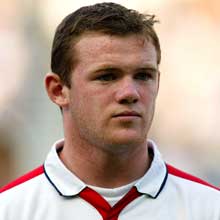Galileo Galilei - Rerouted from Religon to Science
After four years, Galileo had announced to his father that he wanted to be a monk. This was not exactly what father had in mind, so Galileo was hastily withdrawn from the monastery. In 1581, at the age of 17, he entered the University of Pisa to study medicine, as his father wished.Galileo Galilei - Law of the Pendulum
At age twenty, Galileo noticed a lamp swinging overhead while he was in a cathedral. Curious to find out how long it took the lamp to swing back and forth, he used his pulse to time large and small swings. Galileo discovered something that no one else had ever realized: the period of each swing was exactly the same. The law of the pendulum, which would eventually be used to regulate clocks, made Galileo Galilei instantly famous. Except for mathematics, Galileo Galilei was bored with university. Galileo's family was informed that their son was in danger of flunking out. A compromise was worked out, where Galileo would be tutored full-time in mathematics by the mathematician of the Tuscan court. Galileo's father was hardly overjoyed about this turn of events, since a mathematician's earning power was roughly around that of a musician, but it seemed that this might yet allow Galileo to successfully complete his college education. However, Galileo soon left the University of Pisa without a degree.Galileo Galilei - Mathematics
To earn a living, Galileo Galilei started tutoring students in mathematics. He did some experimenting with floating objects, developing a balance that could tell him that a piece of, say, gold was 19.3 times heavier than the same volume of water. He also started campaigning for his life's ambition: a position on the mathematics faculty at a major university. Although Galileo was clearly brilliant, he had offended many people in the field, who would choose other candidates for vacancies.Galileo Galilei - Dante's Inferno
Ironically, it was a lecture on literature that would turn Galileo's fortunes. The Academy of Florence had been arguing over a 100-year-old controversy: What were the location, shape, and dimensions of Dante's Inferno? Galileo Galilei wanted to seriously answer the question from the point of view of a scientist. Extrapolating from Dante's line that "[the giant Nimrod's] face was about as long/And just as wide as St. Peter's cone in Rome," Galileo deduced that Lucifer himself was 2,000 armlengths long. The audience was impressed, and within the year, Galileo had received a three-year appointment to the University of Pisa, the same university that never granted him a degree!The Leaning Tower of Pisa
At the time that Galileo arrived at the University, some debate had started up on one of Aristotle's "laws" of nature, that heavier objects fell faster than lighter objects. Aristotle's word had been accepted as gospel truth, and there had been few attempts to actually test Aristotle's conclusions by actually conducting an experiment! According to legend, Galileo decided to try. He needed to be able to drop the objects from a great height. The perfect building was right at hand--the Tower of Pisa, 54 meters tall. Galileo climbed up to the top of the building carrying a variety of balls of varying size and weight, and dumped them off of the top. They all landed at the base of the building at the same time (legend says that the demonstration was witnessed by a huge crowd of students and professors). Aristotle was wrong.However, Galileo Galilei continued to behave rudely to his colleagues, not a good move for a junior member of the faculty. "Men are like wine flasks," he once said to a group of students. "...look at....bottles with the handsome labels. When you taste them, they are full of air or perfume or rouge. These are bottles fit only to pee into!"Not surprisingly, the University of Pisa chose not to renew Galileo's contract.
Necessity is the Mother of Invention
Galileo Galilei moved on to the University of Padua. By 1593, he was desperate in need of additional cash. His father had died, so Galileo was the head of his family, and personally responsible for his family. Debts were pressing down on him, most notably, the dowry for one of his sisters, which was paid in installments over decades (a dowry could be thousands of crowns, and Galileo's annual salary was 180 crowns). Debtor's prison was a real threat if Galileo returned to Florence. What Galileo needed was to come up with some sort of device that could make him a tidy profit. A rudimentary thermometer (which, for the first time, allowed temperature variations to be measured) and an ingenious device to raise water from aquifers found no market. He found greater success in 1596 with a military compass that could be used to accurately aim cannonballs. A modified civilian version that could be used for land surveying came out in 1597, and ended up earning a fair amount of money for Galileo. It helped his profit margin that 1) the instruments were sold for three times the cost of manufacture, 2) he also offered classes on how to use the instrument, and 3) the actual toolmaker was paid dirt-poor wages.A good thing. Galileo needed the money to support his siblings, his mistress (a 21 year old with a reputation as a woman of easy habits), and his three children (two daughters and a boy). By 1602, Galileo's name was famous enough to help bring in students to the University, where Galileo was busily experimenting with magnets.
 RSS Feed
RSS Feed Twitter
Twitter














